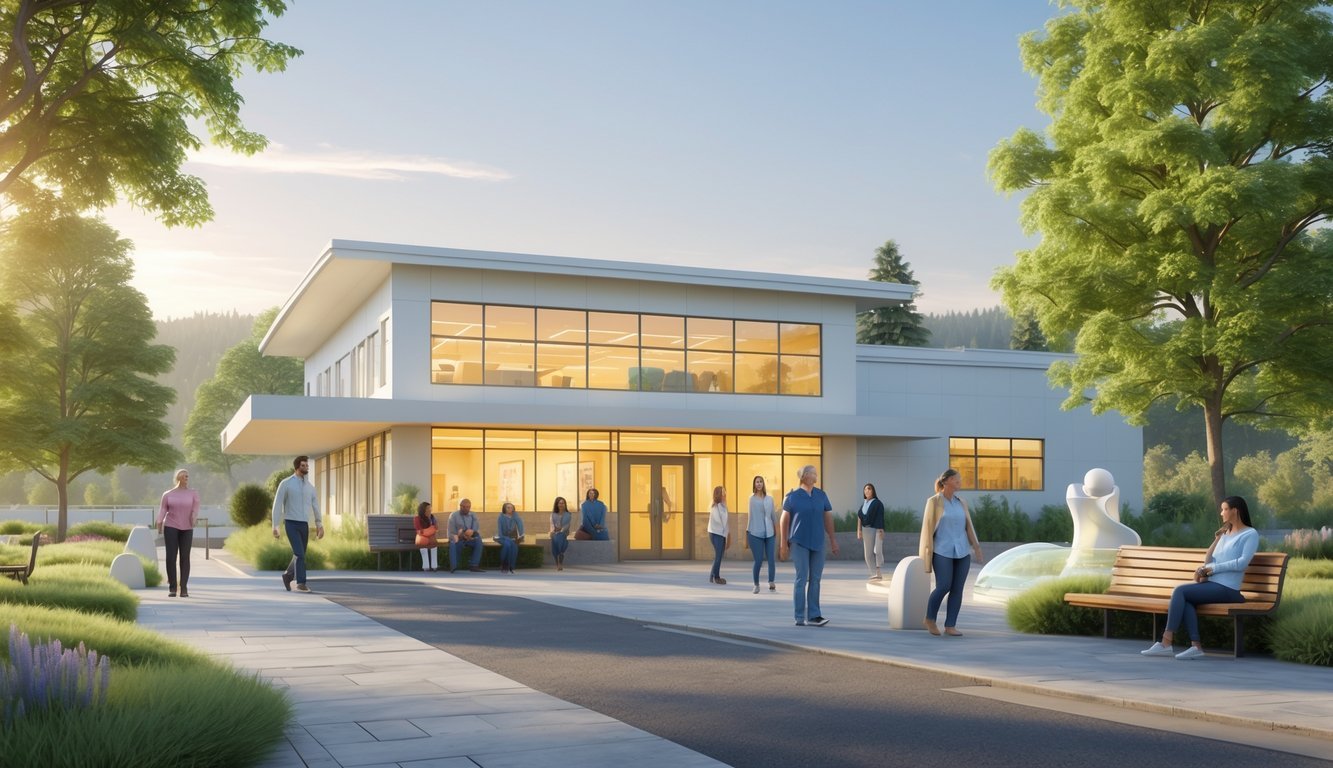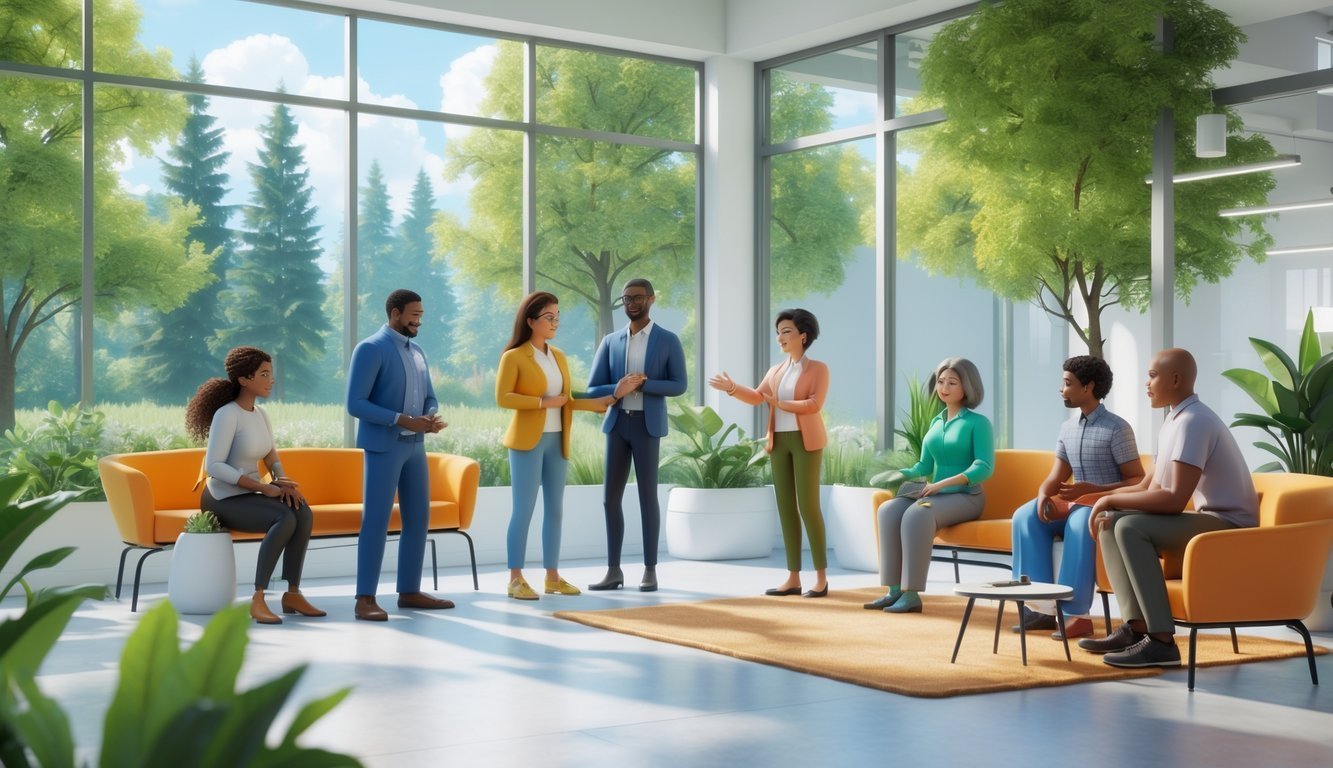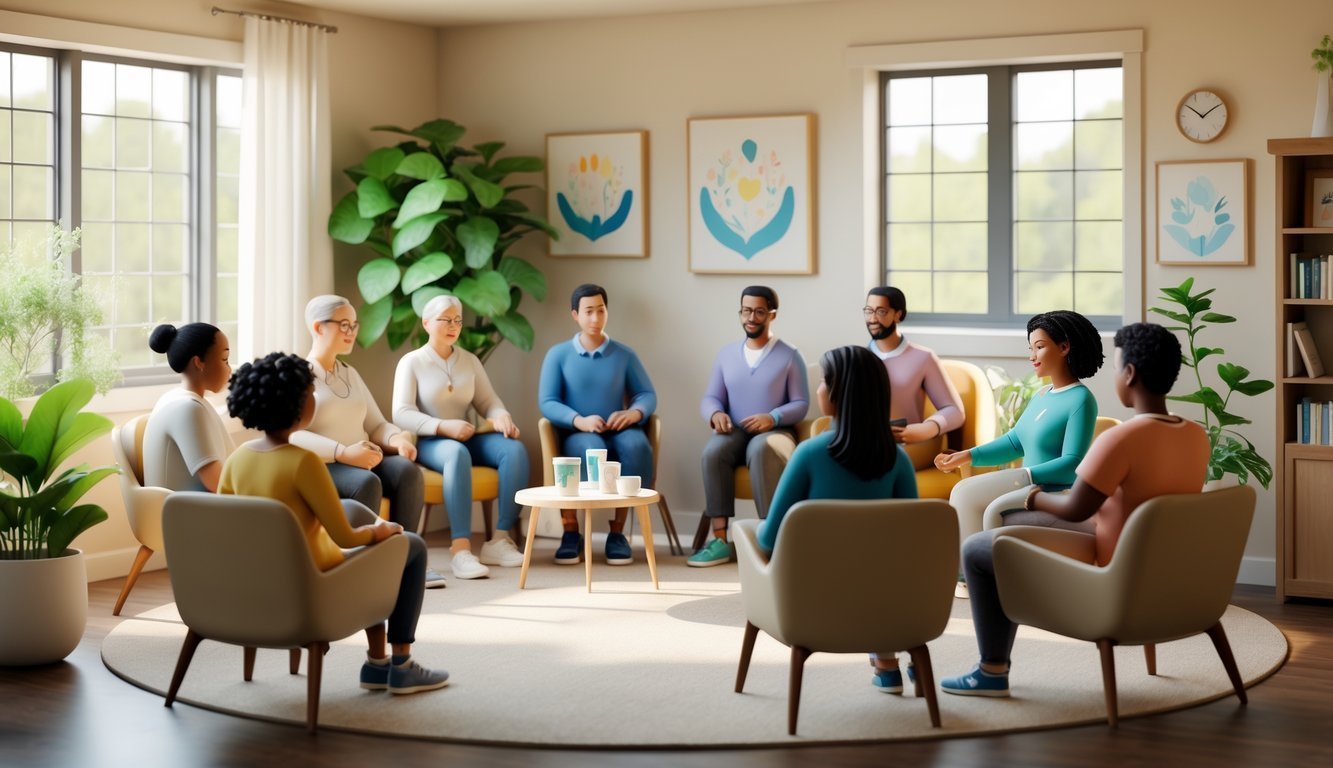PsychNewsDaily Publishers
100 Summit Drive
Burlington, MA, 01803
Telephone: (320) 349-2484
PsychNewsDaily Publishers
100 Summit Drive
Burlington, MA, 01803
Telephone: (320) 349-2484
Oregon offers numerous free and low-cost mental health services through universities, community organizations, and government programs, ensuring accessible support across urban and rural areas.

Getting quality mental health care shouldn’t drain your wallet. Oregon has plenty of free and low-cost mental health services through community groups, universities, and government programs. You can get the support you need without all the financial stress.
You can find free mental health services all over Oregon at university counseling centers, community health organizations, support groups, and state-funded programs. These places offer everything from one-on-one counseling and group therapy to crisis help and support for specific communities.
No matter if you’re in Portland, Eugene, or out in rural Oregon, knowing your options for free mental health care can put you in touch with the right support when you really need it. This guide helps you figure out how to get these services, find community support groups, and track down resources that fit your needs and location.

Oregon gives you a few different ways to get free mental health care through universities, county programs, and state resources. If you know what you qualify for and which numbers to call, you can get immediate help or ongoing support.
Start by calling your county health department. They run most public mental health services in Oregon.
Each county sets up its own programs, and the services can be a bit different. Jackson County Health and Human Services helps people in that area, and other counties have similar setups.
University counseling centers help students and sometimes community members too. Oregon State University’s Counseling & Psychological Services offers direct support and can point you to local resources.
The OSU-Cascades Mental Health Clinic gives free services to Central Oregon. Graduate student counselors work under supervision.
Call 211 to get info on local resources. They’ll connect you to mental health programs near you.
Oregon universities keep 24/7 crisis support lines open. University of Oregon Health Services gives mental health crisis support at 541-346-3227 when their main office is closed.
If you or someone else is in immediate danger, call 911. Emergency services can step in right away for mental health crises.
Oregon State University students can call their main counseling line at 541-737-2131 for help during business hours. You’ll reach professional counselors there.
Counties also run their own crisis lines. Check with your local health department for the right number in your area.
Most university counseling services ask that you’re a student, but some also help faculty, staff, or community members for free.
County mental health services usually go by income guidelines. A lot of programs will help you even if you don’t have insurance or can’t pay.
Some programs have age limits. The Cohen Children’s Pediatric Behavioral Health Urgent Care Center helps kids ages 5 through 17 in crisis.
Residency rules can change by program. Counties often want you to live in their area, and universities may need you to be enrolled or part of their community.
Oregon Health Plan members get extra resources too. Call your plan to see what’s covered and which providers you can use.

Community counseling centers around Oregon offer affordable mental health care through university training programs. Support groups give you peer help for things like anxiety, depression, or trauma recovery.
Oregon’s universities run low-cost counseling clinics for both students and the community. The PSU Community Counseling Clinic offers individual, relationship, and family counseling with flexible hours.
The Lewis & Clark Community Counseling Center gives high quality, low cost mental health services for individuals, families, couples, and kids. These centers focus on care that fits your background and needs.
Key Features:
You don’t have to be a student to use these services. Most places ask you to set up an appointment, so call ahead before your first visit.
Oregon’s mental health centers run all sorts of group formats to fit your needs and schedule. Some groups focus on certain conditions, while others cover general mental wellness.
Common Group Types:
Group counseling helps with relationships, social anxiety, stress, and self-esteem. Many places offer ongoing groups that meet weekly or shorter workshops that last about 4-6 sessions.
Some groups meet at lunch for working adults. Others happen in the evening or on weekends, so you can pick what fits your schedule.
Group settings give you a safe spot to practice social skills. You’ll see that others deal with similar stuff, which can make you feel less alone.
Key Advantages:
Group members sometimes form real friendships that last outside the group. The shared experience can feel more understanding than what you get from friends or family.
You’ll pick up coping tips from people who’ve been through similar things. Sometimes advice from peers just hits differently than what a professional says.

Oregon has mental health services made for specific groups, like LGBTQIA2S+ folks, trauma survivors, veterans, older adults, and families with kids. These programs give you care and support that matches your unique background and needs.
You can get affirming mental health care through several LGBTQIA2S+ organizations in Oregon. These groups know the challenges around identity, discrimination, and family issues.
Key LGBTQIA2S+ Mental Health Resources:
A lot of these organizations run peer support groups. You can join online or in person, whichever feels right.
Some providers offer therapy for things like gender dysphoria, coming out, or relationship support. Most services use sliding scale fees, so you pay what you can.
Survivors of domestic violence and sexual assault can get mental health services focused on trauma. These programs understand how trauma shapes your recovery.
Survivor Mental Health Resources:
You can get both crisis help and longer-term support. These organizations don’t turn people away for not being able to pay.
Many places use trauma therapy like EMDR or cognitive behavioral therapy. Support groups for marginalized communities help you break down extra barriers to care.
Veterans and older adults in Oregon can find mental health programs just for them. These services focus on things like PTSD, depression, loneliness, and aging concerns.
Veteran Mental Health Options:
Area Agencies on Aging help older adults with mental health support and connection services. They have programs for grief, adjusting to illness, and cognitive health.
Many communities run senior centers with support groups and wellness activities. These programs help you stay connected and boost your mental health.
Families can get mental health services for kids, teens, and parents. These programs help with behavior issues, family conflicts, and development concerns.
Youth and Family Resources:
Many programs include families in treatment planning. You’ll find therapy for your child and options for family counseling.
Support groups connect you with other parents who get what you’re going through. These services often include case managers who help you find resources for your family.
Oregon gives you free mental health services in both cities and rural areas, but what’s available can really depend on where you live. Rural areas might have fewer options, while cities usually offer more choices.
Portland Area
Portland has lots of community mental health centers with free services. Multnomah County offers crisis help and ongoing counseling at several spots.
Eugene/Springfield
The University of Oregon area has mental health and crisis support through campus services. Community health centers also help residents who aren’t students.
Salem
Marion County runs free mental health clinics. The capital city also offers special programs for different groups.
Bend/Central Oregon
OSU-Cascades Mental Health Clinic gives free mental health services to the Central Oregon community. Graduate students provide supervised counseling here.
Corvallis
Oregon State University’s Counseling & Psychological Services offers prevention, skill-building, and crisis support. The university also has mental health resources through Student Health Services.
Rural Oregon Challenges
Rural hospitals throughout Oregon work hard to provide high-quality healthcare, even though they often have fewer resources. Good Shepherd Health Care System in Hermiston and Southern Coos Hospital in Bandon show what community-focused care can look like.
Access Barriers
Fewer than 50% of children who get referred to mental health services actually end up using them. Adults run into similar problems, with about half missing out on the care they need.
Navigation Support
Care navigators step in to help families find mental health services. Social workers or community health workers often fill this role and can guide you through the maze.
Wraparound Services
Wraparound plans mix formal services with community support from friends and family. This style seems to work best in smaller communities, where people lean on each other a bit more.